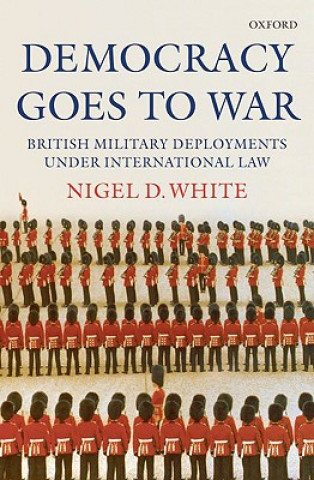
Livrare
Consilier de cumpărături





Nu se pretează? Nu contează! La noi puteți returna bunurile în 30 de zile
 Voucher cadou
orice valoare
Voucher cadou
orice valoare
Cu un voucher cadou nu veți da greș. În schimbul voucherului, destinatarul își poate alege orice din oferta noastră.
Democracy goes to War
 engleză
engleză
 457 b
457 b
30 de zile pentru retur bunuri
Ar putea de asemenea, să te intereseze


With the end of the Second World War a new world order arose based on the prohibition of military force in international relations, and yet since 1945 British troops have been regularly deployed around the globe: most notably to Korea, Suez, Cyprus, and the Falklands during the Cold War; and Kuwait, Bosnia, Kosovo, Afghanistan and Iraq since the fall of the Berlin Wall. British forces have been involved in many different capacities: as military observers, peacekeepers, peace-enforcers, state-builders and war-fighters. The decisions to deploy forces are political ones made within several constitutional frameworks, national, regional and international. After considering the various legal and institutional regimes, this book examines the decision to deploy troops from the perspective of international law. In its military interventions Britain has consistently tried to utilize international law to justify its actions, though often it argues against orthodox interpretation of the laws. In gauging whether its actions are in breach of international law we can again make judgments at different levels using various forms of accountability - from judicial fora (for example the International Court of Justice in The Hague or the European Court of Human Rights in Strasbourg), to political ones (the UN General Assembly in New York or the House of Commons in Westminster). While this book examines international and regional mechanisms, tumultuous debates on the Suez crisis, Afghanistan, Iraq and others in the House of Commons and its Committees are highlighted to show how international law impacts upon domestic politics. In considering whether democratic accountability is effective in upholding the principles of international law, this book throws new light on an old democracy, and thereby makes a contribution to the current reform proposals that are aimed at improving democratic decision-making.
Informații despre carte
 engleză
engleză




 Cum să cumpăr
Cum să cumpăr


























